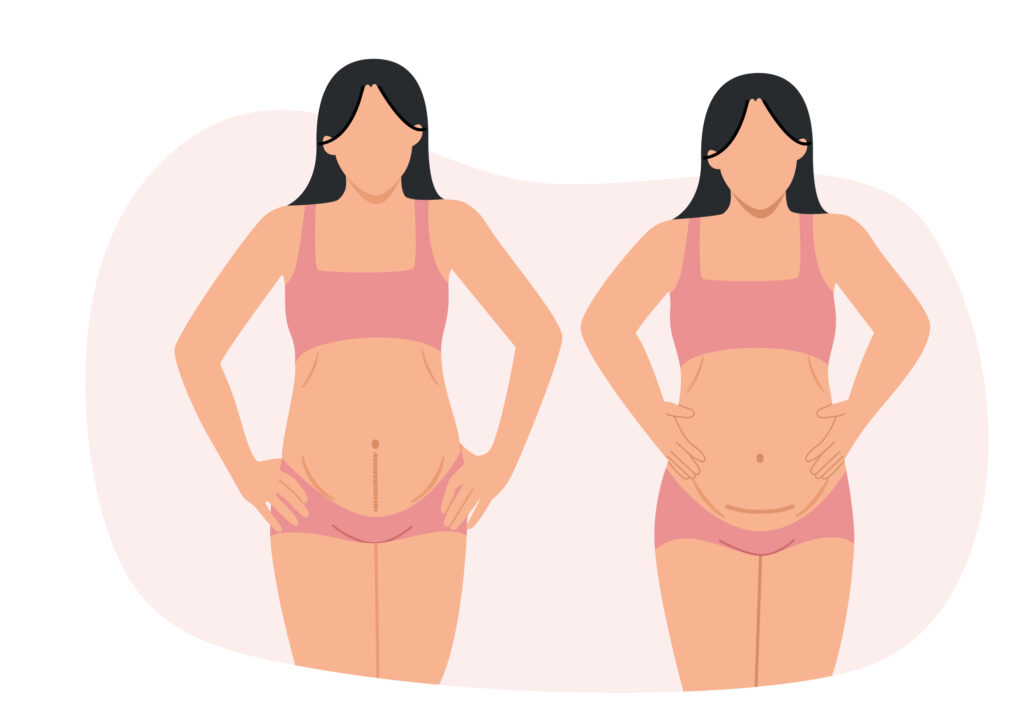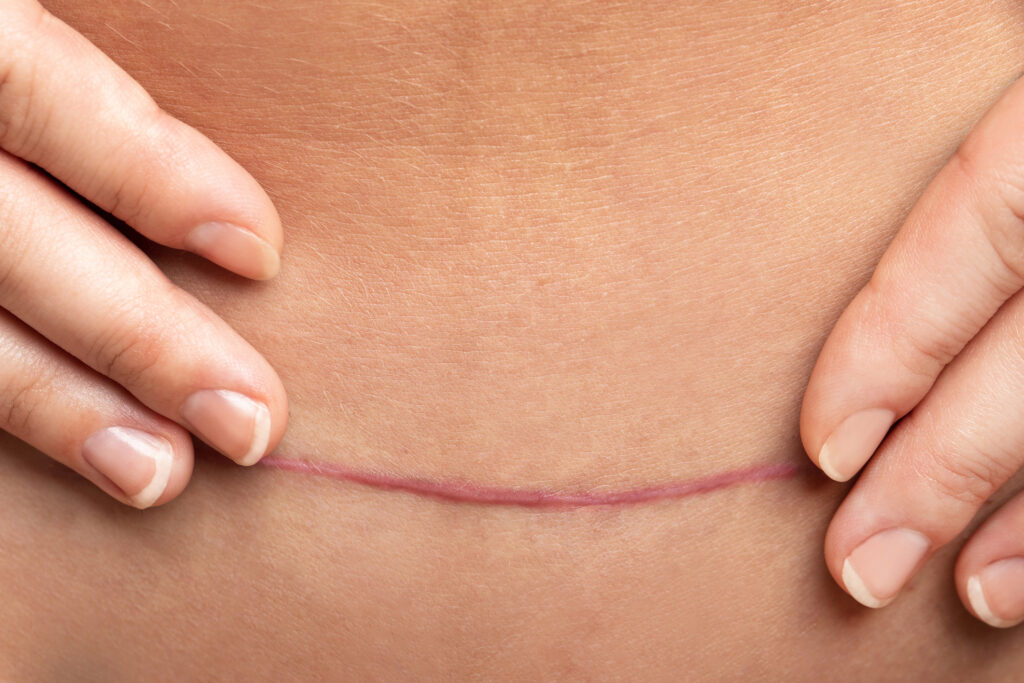Why Is My C-Section Scar Itchy? Understanding the Causes and Treatments
Having an itchy C-section scar can be frustrating and worrying. Many women experience this after their surgery, but understanding why it happens can help put your mind at ease. Fortunately, most causes of C-section scar itching are normal and treatable. The Devonshire Clinic treats C-section scars for our patients in London and throughout the UK, helping them feel more comfortable and confident about their healing process. Here’s why your scar might be itchy and what you can do about it.
Why Does My C-Section Scar Itch?
C-section scar itching is very common. As your body heals from surgery, it undergoes many changes. Meanwhile, the skin around your scar works to repair itself, which often causes itching.
Your body starts healing immediately after surgery. New skin cells grow to close the wound, and nerve endings regenerate during this time. However, the process can make your scar feel itchy, tight, or uncomfortable.

Stages of Healing and Scar Itching
Your C-section scar goes through different stages as it heals. Each stage can affect how much itching you feel. In the first few weeks after surgery, your body forms new tissue to close the wound. This is typically when itching begins. Over the next few months, your scar will continue to change. It might feel raised, thick, or lumpy, which are all normal and part of the healing process.
Most itching is normal, but sometimes it can be a sign of a problem. consult a healthcare provider if your scar becomes very red, hot, or painful.
Common Causes of C-Section Scar Itching
Several things can cause your C-section scar to itch, including:
- Healing Tissue and Nerve Growth – New nerves grow as your body repairs itself. They may cause itching, tingling, or numbness around your scar.
- Dry Skin – The skin around your scar can become dry and tight. This makes itching worse. Pregnancy and breastfeeding can also dry out your skin.
- Hormonal Changes – After giving birth, your hormone levels change quickly. These changes can affect your skin and make it more sensitive.
- Clothing Rubbing – tight clothing or rough fabrics can irritate your scar. This friction can make itching worse.
- Allergic Reactions – Some people react to surgical tape, stitches, or skin products. This can cause itching, redness, or a rash.
- Infection – Though less common, infections can cause itching and other symptoms like fever, increased pain, or discharge.
Effective Treatments for C-Section Scar Itching
The Devonshire Clinic uses other techniques to improve the appearance of C-Section Scars. Our professional treatments also help reduce itching. Among the ways to treat an itchy C-section scar are:
- Moisturising Creams – Creams keep your skin soft and reduce itching. Use gentle, fragrance-free products several times daily.
- Scar Massage – Reduce itching and improve healing using circular massage motions with your fingertips. Start slowly and be very gentle.
- Cool Compresses – Use a clean, damp cloth for a few minutes at a time to provide quick itching relief.
- Loose Clothing – Avoid tight waistbands or rough fabrics that rub against your scar.

When to Be Concerned About Itching
Although most C-section scar itching is normal, sometimes you need medical help. Consult a healthcare provider if you notice any of these potential signs of infection or other complications:
- Severe itching that doesn’t improve
- Redness spreading away from your scar
- Warmth or heat around the scar
- Pus or unusual discharge
- Fever or feeling unwell
- The scar opening up again
Preventing C-Section Scar Itching
Our specialists have compiled a list of steps you can take to reduce C-section scar itching. You should:
- Keep your scar clean and dry. Wash gently with mild soap and pat dry with a clean towel.
- Moisturise regularly with gentle, unscented creams to keep your skin soft and reduce dryness.
- wear loose-fitting, soft clothing that doesn’t rub against your scar. Cotton fabrics are often best.
- Avoid scratching your scar. This can damage the healing skin and make itching worse.
- Stay hydrated and eat well. Good nutrition helps your body heal faster.
The Role of Professional Treatments in Scar Care
The Devonshire Clinic offers treatments that can help with itchy C-section scars. Professional care can greatly affect how your scar heals and feels. Some of our patients benefit from:
- Laser therapy can reduce itching and improve scar appearance. It works by encouraging healthy skin growth.
- Microneedling creates tiny wounds that encourage your body to produce new, healthy skin.
- Other treatments include special creams and massage techniques. A professional can show you the best way to care for your C-section scar.
Contact The Devonshire Clinic for Scar Treatments Today
With proper care and treatment, most C-section scar itching will gradually improve. Rely on The Devonshire Clinic for professional support. We have experience treating C-section scars and are eager to help you feel your best. Contact us today to get started.